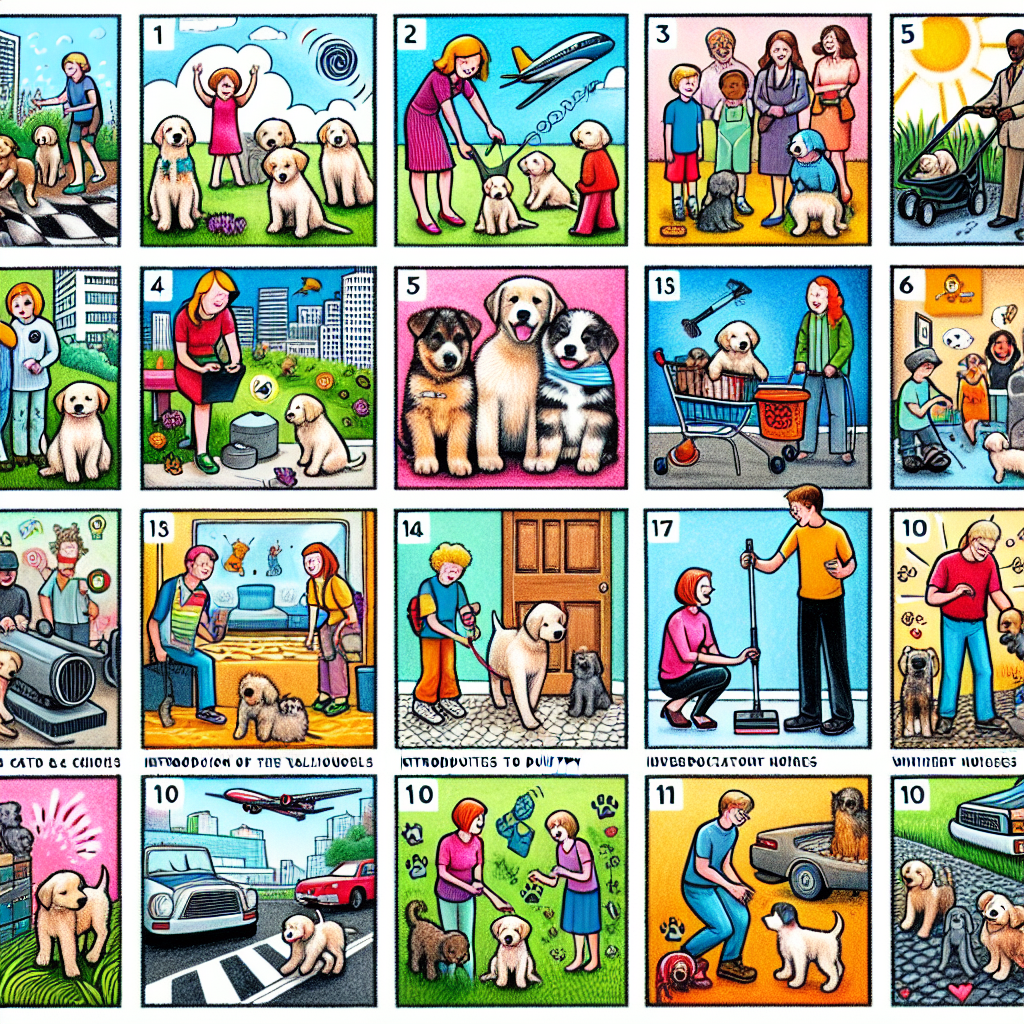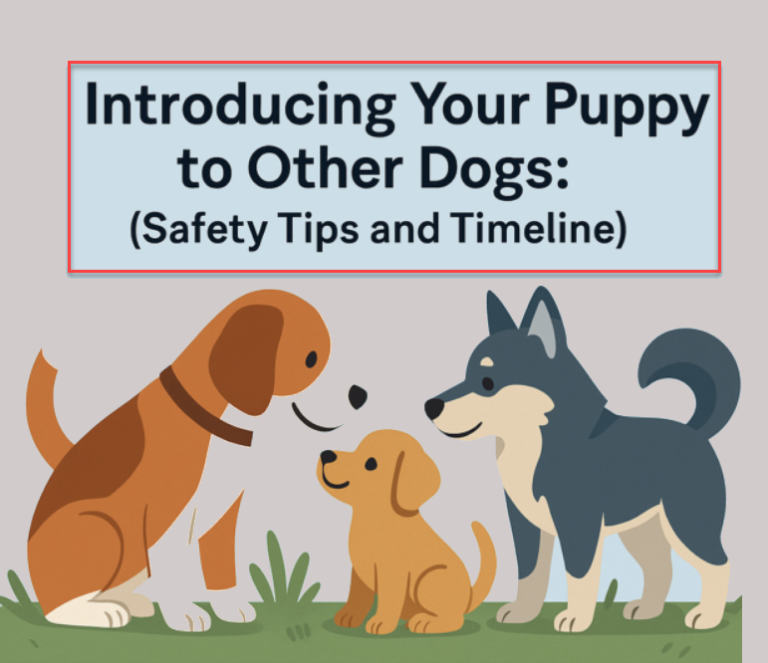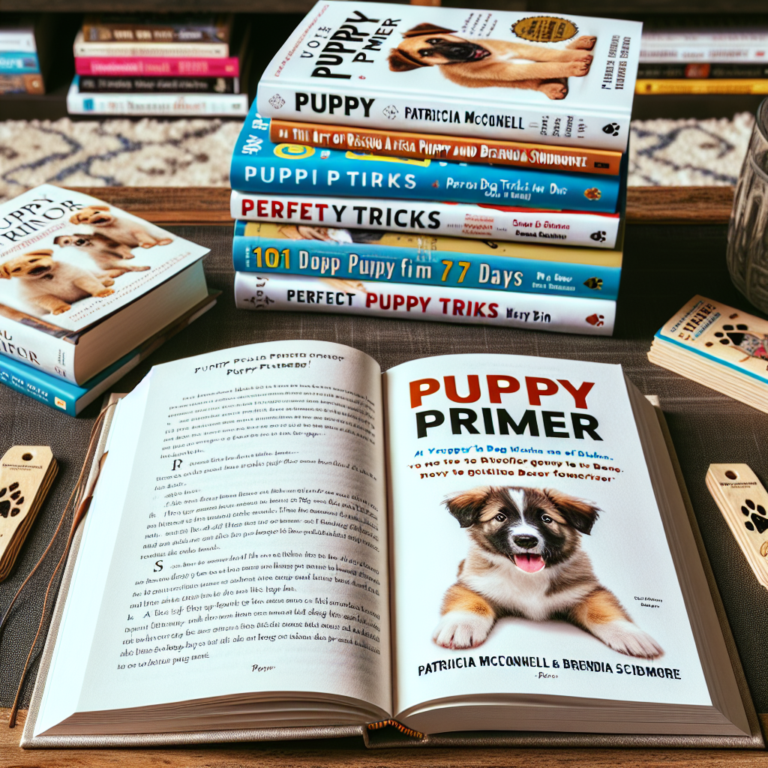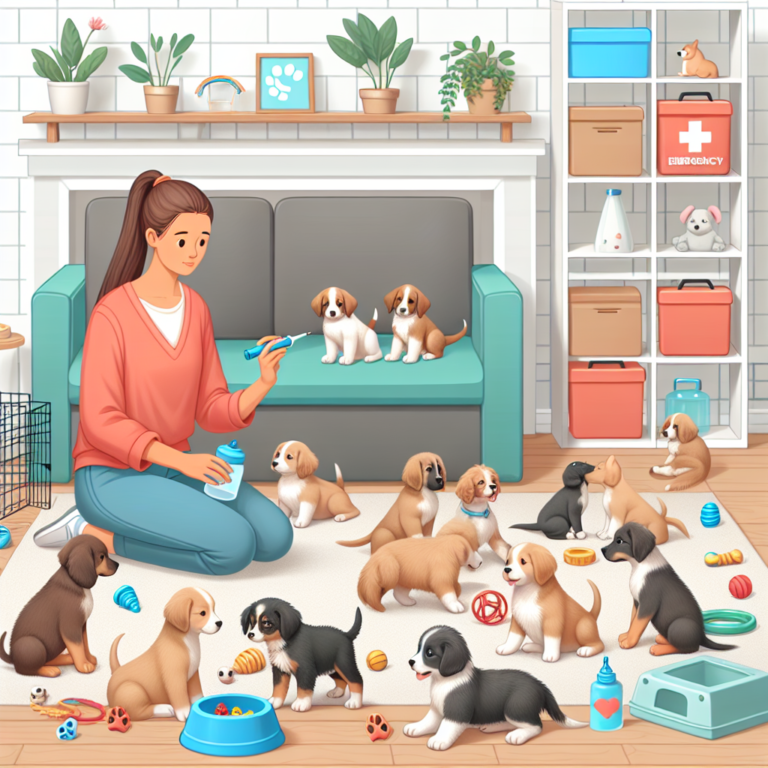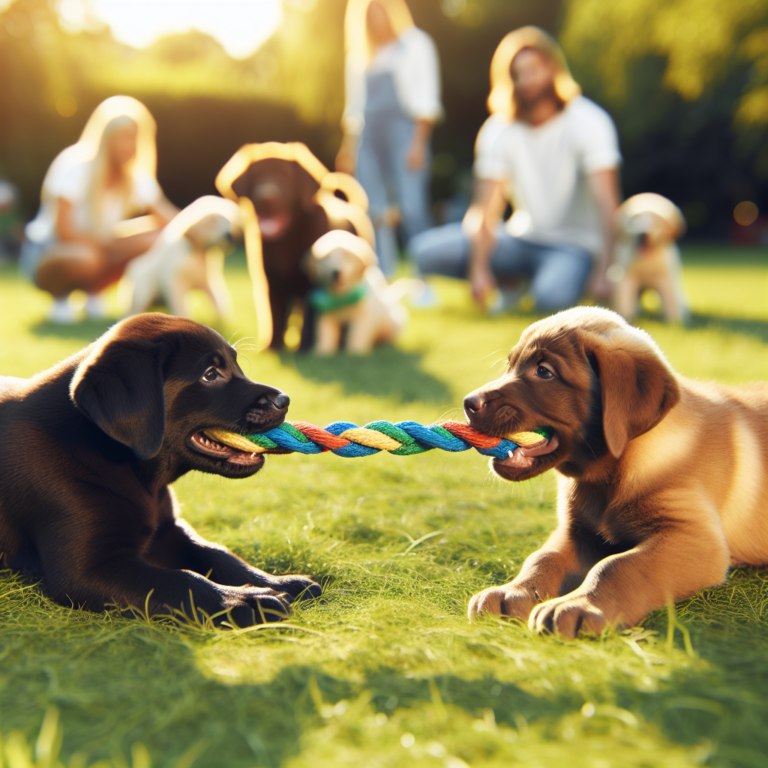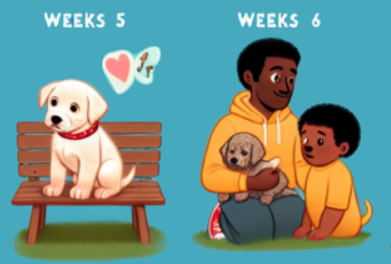Puppy socialization is the foundation of a well-behaved and confident dog. The first 16 weeks of a puppy’s life is a critical period where they are most receptive to new experiences.
This checklist aims to ensure that puppies are exposed to a wide range of situations, which is essential for their development and future behavior.
Understanding Puppy Socialization
Puppy socialization involves exposing your puppy to new experiences, environments, and beings safely and positively. Early socialization is beneficial as it helps puppies grow into well-adjusted dogs less prone to anxiety or aggression. Without proper socialization, puppies are at risk of developing behavioral issues, inhibiting their ability to adapt to new environments and experiences.
The 30 Experiences Checklist for Optimal Puppy Socialization
- Meeting Different Groups of People: Introduce your puppy to children, adults, and seniors to make them comfortable around various age groups.
- Observing People in Attire: Allow your puppy to see people wearing hats, sunglasses, and uniforms to prevent any future apprehension.
- Interacting with Dogs: Encourage interactions with both puppies and adult dogs to learn social cues.
- Exposure to Diverse Animals: Introduce your puppy to cats, birds, and other animals to broaden their environmental awareness.
- Various Surfaces: Familiarize your puppy with different surfaces like grass, gravel, and carpet for tactile variation.
- Different Terrains: Walking on hills and steps can help develop coordination and confidence.
- Household Noises: Sound exposure to vacuum cleaners and doorbells is critical for sound desensitization.
- Transport Sounds: Let your puppy hear cars, trains, and planes to reduce noise anxiety.
- Outdoor Environments: Frequent parks and city streets to introduce urban and natural settings.
- Weather Conditions: Experience different weather like rain and wind to prepare for variable climates.
- Veterinarian Visits: Regular visits to the vet’s office promote positive health care associations.
- Puppy School: Enroll in obedience classes for structured educational experiences.
- Meeting Strangers: Regularly introduce your puppy to new people to build their confidence.
- Exposure to Objects: Introducing uncommon items, such as umbrellas and skateboards, encourages curiosity.
- Car Travel: Safe car rides familiarize your puppy with travel.
- Handling by People: Let different people gently handle your puppy to promote social comfort.
- Grooming Practices: Begin grooming early to ensure a stress-free grooming routine later on.
- Pet-Friendly Stores: Visits to these environments are excellent for social training.
- Mirrors and Reflections: Getting familiar with their reflection can reduce confusion and fear.
- Walking Textures: Introduce sand and tile walks to expand sensory experiences.
- Bicycle Observation: Seeing a bicycle ride past helps adapt to moving objects.
- Unusual Items: Balloons and flags can be intriguing for puppies.
- Controlled Play Sessions: Ensure safety and fun while learning to play.
- Pet-Friendly Cafés: Socialize your puppy in relaxing public spaces.
- Wildlife Observation: Encourage watching squirrels and ducks to enhance environmental acclimation.
- Nighttime Exposure: Introduce a calm nighttime setting to ease nighttime anxiety.
- Musical Audiences: Different instruments add to their aural vocabulary.
- Clapping and Cheering: Familiar sounds help in not startling easily.
- Family Gatherings: Regular exposure to group environments enhances calmness.
- Collar and Leash Introduction: Early practice makes walking a pleasant experience.
Tips for Successful Socialization
Positive experiences are key; always reward your puppy with treats and praise. Acknowledging signs of fear or stress allows you to manage anxiety effectively. Remember to introduce new experiences gradually to avoid overstimulation. According to Dr. Sophia Yin, a renowned veterinarian and animal behaviorist, “The most important time to socialize your puppy is during their early weeks of life.”
Common Mistakes and How to Avoid Them
One pitfall in puppy socialization is overwhelming them with too many experiences simultaneously. It’s crucial to continue socialization beyond the initial 16 weeks. Ensure vaccinations and healthcare are up-to-date when taking your puppy into new settings to maintain their health.
IMPORTANT: Dogs and Car Rides..
Conclusion
Following a structured socialization checklist is vital for your puppy’s long-term happiness and behavior. Starting early maximizes the impact of socialization and results in a well-adjusted adult dog. Long-term benefits include reduced behavioral problems and enhanced well-being, both for your pet and your household.
Additional Resources
Explore puppy training guides like “The Puppy Primer” for comprehensive insights. Books like Perfect Puppy in 7 Days” provide valuable techniques for socialization success. For localized training support, contact local dog trainers or puppy schools for guidance.

